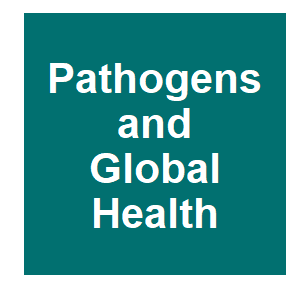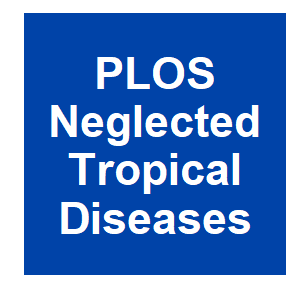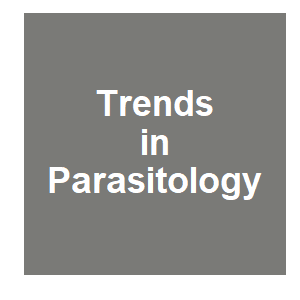
Keywords: transgenic mosquitoes

|
Mosquito Embryo MicroinjectionR. A. Harrell, Cold Spring Harbor Protocols, 2023.
Genetically modified (GM) mosquitoes are an important tool in the fight against mosquito-borne disease, both indirectly through their use in research investigating host–pathogen interaction, mosquito olfaction, and anthropomorphic behavior and in future direct uses for ... Keywords: autocidal, florida keys mosquito control district, Oxitec, population modification, SIT, sterile insect technique, transgenic mosquitoes |

|
Quantifying Fitness Costs in Transgenic Aedes aegypti MosquitoesI. Sanchez-Vargas, A. E. Williams, L. E. Martin, I. Martin-Martin, S. Bennett, K. E. Olson and E. Calvo, Journal of Visualized Experiments, 2023.
Transgenic mosquitoes often display fitness costs compared to their wild-type counterparts. In this regard, fitness cost studies involve collecting life parameter data from genetically modified mosquitoes and comparing them to mosquitoes lacking transgenes from the same genetic ... Keywords: autocidal, florida keys mosquito control district, Oxitec, population modification, SIT, sterile insect technique, transgenic mosquitoes |

|
Mimicking superinfection exclusion disrupts alphavirus infection and transmission in the yellow fever mosquito Aedes aegyptiReitmayer, Christine M. Levitt, Emily Basu, Sanjay Atkinson, Barry Fragkoudis, Rennos Merits, Andres Lumley, Sarah Larner, Will Diaz, Adriana V. Rooney, Sara Thomas, Callum J. E. von Wyschetzki, Katharina Rausalu, Kai Alphey, Luk, Proceedings of the National Academy of Sciences, 120:e2303080120. 2023.
Multiple viruses, including pathogenic viruses, bacteriophages, and even plant viruses, cause a phenomenon termed superinfection exclusion whereby a currently infected cell is resistant to secondary infection by the same or a closely related virus. In alphaviruses, this process ... Keywords: autocidal, florida keys mosquito control district, Oxitec, population modification, SIT, sterile insect technique, transgenic mosquitoes |

|
A synthetic biology approach to transgene expressionP. Leftwich, T. , J. Purcell, C. , M. Anderson, A. E. , R. Fragkoudis, S. Basu, G. Lycett, T. and L. Alphey, bioRxiv, 2023.08.31.555539. 2023.
The ability to control gene expression is pivotal in genetic engineering and synthetic biology. However, in most non-model and pest insect species, empirical evidence for predictable modulation of gene expression levels is lacking. This knowledge gap is critical for genetic ... Keywords: autocidal, florida keys mosquito control district, Oxitec, population modification, SIT, sterile insect technique, transgenic mosquitoes |

|
High-efficiency gene editing in Anopheles sinensis using ReMOT controlX.-l. Yang, X. Ling, Q. Sun, P.-p. Qiu, K. Xiang, u.-f. JHong, S.-l. He, J. Chen, X. Ding, H. Hu, Z.-b. He, C. Zhou, B. Chen and L. Qiao, bioRxiv, 2023.08.29.555096. 2023.
CRISPR/Cas9-mediated gene editing provides an effective method for deciphering the molecular mechanisms underlying mosquito development and mosquito-borne disease transmission, as well as for exploring genetic control strategies. However, delivering the Cas9 ribonucleoprotein ... Keywords: autocidal, florida keys mosquito control district, Oxitec, population modification, SIT, sterile insect technique, transgenic mosquitoes |

|
Combining two genetic sexing strains allows sorting of non-transgenic males for Aedes genetic controlC. Lutrat, M. Burckbuchler, R. P. Olmo, R. Beugnon, A. Fontaine, O. S. Akbari, R. Argilés-Herrero, T. Baldet, J. Bouyer and E. Marois, Communications Biology, 6:646. 2023.
Chemical control of disease vectoring mosquitoes Aedes albopictus and Aedes aegypti is costly, unsustainable, and increasingly ineffective due to the spread of insecticide resistance. The Sterile Insect Technique is a valuable alternative but is limited by slow, error-prone, and ... Keywords: autocidal, florida keys mosquito control district, Oxitec, population modification, SIT, sterile insect technique, transgenic mosquitoes |

|
A Zika virus-responsive sensor-effector system in Aedes aegyptiS. Basu, C. M. Reitmayer, S. Lumley, B. Atkinson, M. L. Schade-Weskott, S. Rooney, W. Larner, E. E. Montiel, R. Gutierrez-Lopez, E. Levitt, H. M. Munyanduki, A. M. E. Elrefaey, A. T. Clarke, S. Koit, E. Zusinaite, R. Fragkoudis, A. Merits and L. Alphey, bioRxiv, 2023.02.06.527261. 2023.
Zika virus (ZIKV) is a recently re-emerged flavivirus transmitted primarily through the bite of an infected mosquito, Aedes aegypti being the main vector. ZIKV infection is associated with a range of adverse effects; infection during pregnancy can lead to foetal abnormalities, ... Keywords: autocidal, florida keys mosquito control district, Oxitec, population modification, SIT, sterile insect technique, transgenic mosquitoes |

|
Comprehensive characterization of a transgene insertion in a highly repetitive, centromeric region of Anopheles mosquitoesM. Vitale, C. Leo, T. Courty, N. Kranjc, J. B. Connolly, G. Morselli, C. Bamikole, R. E. Haghighat-Khah, F. Bernardini and S. Fuchs, Pathogens and Global Health, 2022.
The availability of the genomic sequence of the malaria mosquito Anopheles gambiae has in recent years sparked the development of transgenic technologies with the potential to be used as novel vector control tools. These technologies rely on genome editing that confer traits able ... Keywords: autocidal, florida keys mosquito control district, Oxitec, population modification, SIT, sterile insect technique, transgenic mosquitoes |

|
CRISPR-Mediated Genome Engineering in Aedes aegyptiR. Sun, M. Li, C. J. McMeniman and O. S. Akbari, piRNA: Methods and Protocols, 2022.
CRISPR-mediated genome engineering technologies have been adapted to a wide variety of organisms with high efficiency and specificity. The yellow fever mosquito, Aedes aegyptiAedes aegypti, is one such organism. It is also responsible for transmitting a wide variety of deadly ... Keywords: autocidal, florida keys mosquito control district, Oxitec, population modification, SIT, sterile insect technique, transgenic mosquitoes |

|
The Florida Keys Mosquito Control District & Oxitec Announce Launch of Next Phase of Ground-Breaking ProjectOxitec, Oxitec, 2022.
In a continuation of the FKMCD-Oxitec Mosquito Project, Oxitec and FKMCD announced that a new phase of the project (“Pilot D”) will be initiated on or after July 7th, 2022. This phase of the project will examine single-point releases of Oxitec’s male mosquitoes. In March ... Keywords: autocidal, florida keys mosquito control district, Oxitec, population modification, SIT, sterile insect technique, transgenic mosquitoes |

|
Intron-derived small RNAs for silencing viral RNAs in mosquito cellsP. Y. L. Tng, L. Z. Carabajal Paladino, M. A. E. Anderson, Z. N. Adelman, R. Fragkoudis, R. Noad and L. Alphey, PLOS Neglected Tropical Diseases, 16:e0010548. 2022.
Aedes aegypti and Ae. albopictus are the main vectors of mosquito-borne viruses of medical and veterinary significance. Many of these viruses have RNA genomes. Exogenously provided, e.g. transgene encoded, small RNAs could be used to inhibit virus replication, breaking the ... Keywords: autocidal, florida keys mosquito control district, Oxitec, population modification, SIT, sterile insect technique, transgenic mosquitoes |

|
The AalNix3&4 isoform is required and sufficient to convert Aedes albopictus females into malesY. Zhao, B. Jin, P. Liu, X. Xiao, L. Cai, Z. Xie, L. Kong, T. Liu, W. Yang, Y. Wu, J. Gu, Z. Tu, A. A. James and X.-G. Chen, PLOS Genetics, 18:e1010280. 2022.
Author summary Nix serves as a conserved male-determining factor in the two most important mosquito arboviral vectors, Ae. aegypti and Ae. albopictus. AaeNix alone can convert Ae. aegypti females into fertile but flightless males. AalNix has four alternative splice isoforms ... Keywords: autocidal, florida keys mosquito control district, Oxitec, population modification, SIT, sterile insect technique, transgenic mosquitoes |

|
Modifying mosquitoes to suppress disease transmission: Is the long wait over?J. R. Powell, Genetics, 2022.
For more than 50 years it has been a dream of medical entomologists and public health workers to control diseases like malaria and dengue fever by modifying, through genetics and other methods, the arthropods that transmit them to humans. A brief synopsis of the history of ... Keywords: autocidal, florida keys mosquito control district, Oxitec, population modification, SIT, sterile insect technique, transgenic mosquitoes |

|
Self-Deleting Genes Could Control Mosquitoes And Prevent Vector-Borne DiseasesA. Russell, Texas AM TODAY, 2022.
Texas A&M AgriLife Research scientists are testing a technology to make temporary genetic modifications in mosquitoes that self-delete over time. The mechanism to make temporary genetic changes could be important for scientists hoping to modify mosquitoes in ways that help manage ... Keywords: autocidal, florida keys mosquito control district, Oxitec, population modification, SIT, sterile insect technique, transgenic mosquitoes |

|
Brit firm sparks fury after ‘releasing genetically modified mosquitoes’ into wildC. Lawrence-Jones, Daily Star, 2022.
A British company has sparked fury after releasing genetically modified mosquitoes into the wild that critics say could produce new strains of super-mozzies. UK-based Oxitec say they've hacked the insects' genetic make up and hope it will ultimately kill off all-female offspring ... Keywords: autocidal, florida keys mosquito control district, Oxitec, population modification, SIT, sterile insect technique, transgenic mosquitoes |

|
Engineering a self-eliminating transgene in the yellow fever mosquito, Aedes aegyptiK. Chae, C. Dawson, C. Valentin, B. Contreras, J. Zapletal, K. M. Myles and Z. N. Adelman, PNAS Nexus, 2022.
Promising genetics-based approaches are being developed to reduce or prevent the transmission of mosquito-vectored diseases. Less clear is how such transgenes can be removed from the environment, a concern that is particularly relevant for highly invasive gene drive transgenes. ... Keywords: autocidal, florida keys mosquito control district, Oxitec, population modification, SIT, sterile insect technique, transgenic mosquitoes |

|
Self-eliminating genes tested on mosquitoesA. Russell, AGRILIFE Today, 2022.
Texas A&M AgriLife Research scientists have tested a technology to make temporary genetic modifications in mosquitoes. The modifications self-delete over time. Texas A&M AgriLife Research scientists published an article detailing a mechanism to make temporary genetic alterations ... Keywords: autocidal, florida keys mosquito control district, Oxitec, population modification, SIT, sterile insect technique, transgenic mosquitoes |

|
Fighting the world’s most deadly animal: the mosquitoM. Rozenbaum, Understanding Animal Research, 2021.
n the first, sterile male mosquitos are mass produced and released into the wild. These sterile males mate with wild females who then lay sterile eggs which will not hatch. This approach has been shown to reduce wild populations by as much as 90% in trials with Aedes aegypt. The ... Keywords: autocidal, florida keys mosquito control district, Oxitec, population modification, SIT, sterile insect technique, transgenic mosquitoes |

|
Mating competitiveness of sterile genetic sexing strain males (GAMA) under laboratory and semi-field conditions: Steps towards the use of the Sterile Insect Technique to control the major malaria vector Anopheles arabiensis in South AfricaG. Munhenga, B. D. Brooke, J. R. L. Gilles, K. Slabbert, A. Kemp, L. C. Dandalo, O. R. Wood, L. N. Lobb, D. Govender, M. Renke and L. L. Koekemoer, Parasites and Vectors, 9:122. 2016.
Anopheles arabiensis Patton is primarily responsible for malaria transmission in South Africa after successful suppression of other major vector species using indoor spraying of residual insecticides. Control of An. arabiensis using current insecticide based approaches is proving ... Keywords: autocidal, florida keys mosquito control district, Oxitec, population modification, SIT, sterile insect technique, transgenic mosquitoes |

|
Why RIDL is not SITW. C. Black, L. Alphey and A. A. James, Trends in Parasitology, 27:362-370. 2011.
History teaches that sterile insect technique (SIT) is a feasible strategy for mosquito population suppression. Female killing (FK) technologies developed later theoretically had greater potential than SIT, but depended upon chromosomal translocations. Unfortunately these were ... Keywords: autocidal, florida keys mosquito control district, Oxitec, population modification, SIT, sterile insect technique, transgenic mosquitoes |

Contact
David O’Brochta
Foundation for the
National Institutes of Health
geneconvenevi@fnih.org
RSS

